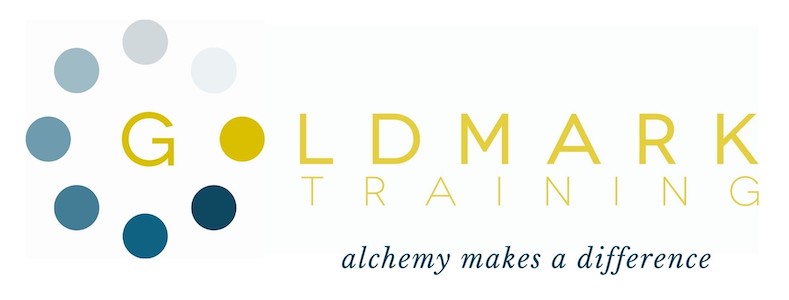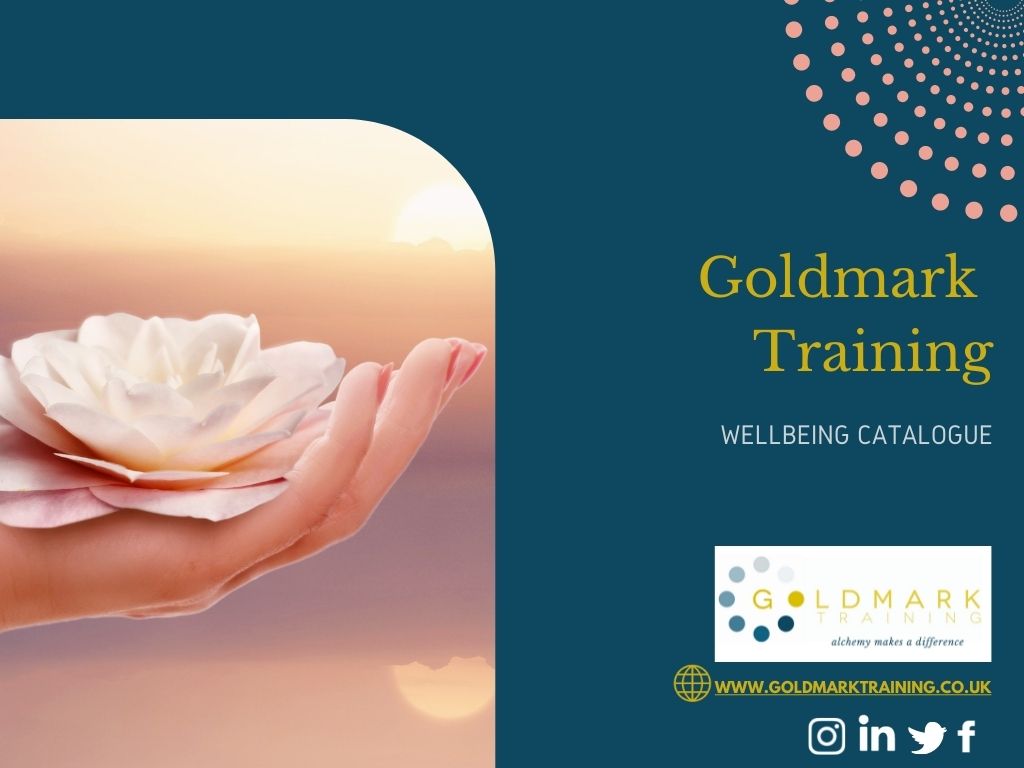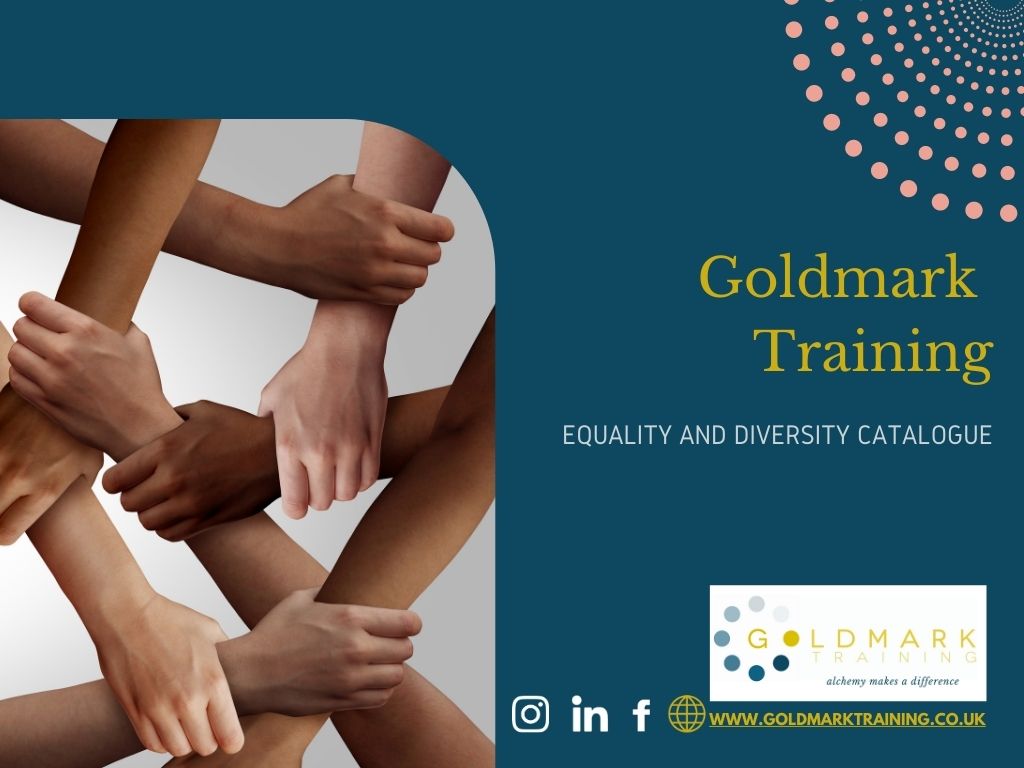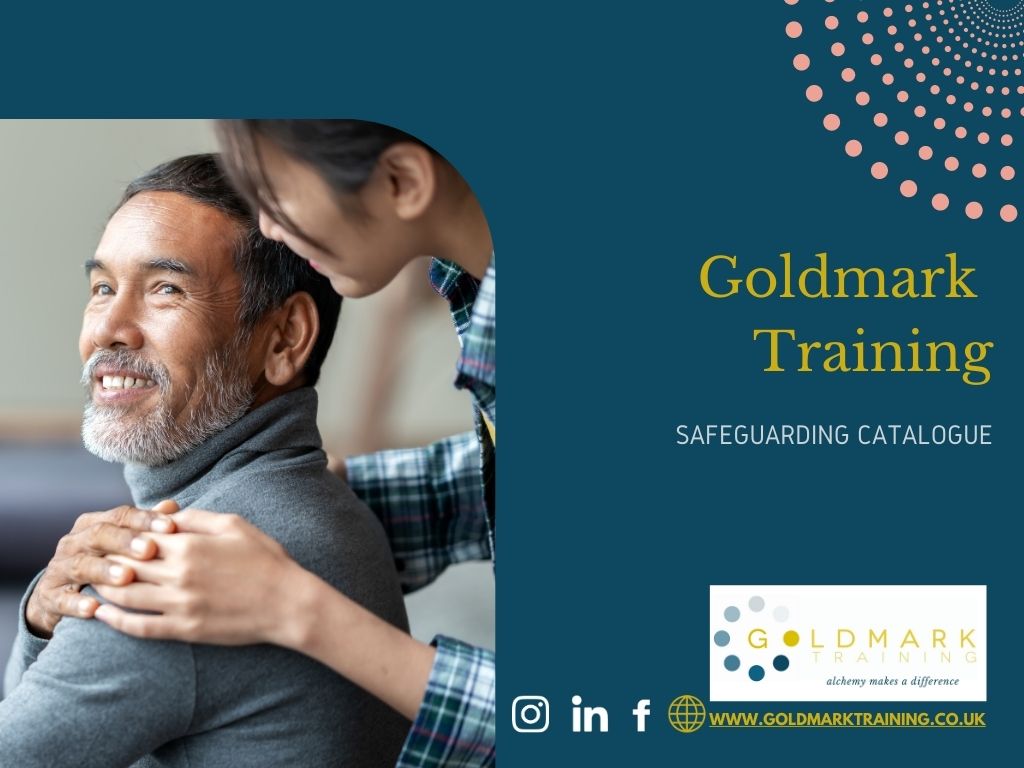Building Self Esteem – Steps to Improvement
Self-esteem can affect roles and relationships in the workplace as well as in your personal life. The aims of this course are to enable you to understand the idea of self-esteem and related concepts forming the basis for assertive behaviour and have confidence you can get your needs met and stand your ground when facing challenges.
Lift – A Wellbeing Programme
This personal development course is aimed at all types of staff. It is broken down into 10 bite size taster sessions in one day and covers mood, sleep, activity, relaxation, thinking, assertiveness, motivation, communication, mindfulness and confidence.
Stress Management – Get to Grips
This stress management training has been developed to help participants identify the causes and effects of stress and to assist them in developing the skills required to manage stress in the workplace including their own stress and learn techniques and strategies to support staff.
Bereavement and Loss
This one-day loss and bereavement training will help staff and managers to adopt a caring and professional response, which can significantly enhance the quality of service and support given. Learn how to support bereaved clients and colleagues. Gain a strong understanding of bereavement issues and the factors affecting the grieving process. Learn about how different cultures view grief. Improve your communication and inter-personal skills.
Managing Depression in the Workplace
This course is designed to enable managers and staff to understand depression and anxiety, what it is (what it is not), signs and symptoms associated with them and how to respond appropriately in a work place setting as a manager or a colleague.
Putting Diversity into Action – Islamic Awareness
Understanding and engaging effectively with your Muslim staff, residents and stakeholders. This course is designed to enable you and your colleagues to provide an informed service to your Muslim customers and staff, meet the needs of the Muslim community and find out about Islam in a warm, friendly atmosphere. Delegates will be able to understand better what Muslims believe and discuss common stereotypes and myths.
Wellbeing in the Workplace
This course will explore the responsibilities for ensuring wellbeing in the workplace and how this is managed. Well-being and stress management issues are within the overall ‘duty of care’ that an employer owes to its employees, yet the consideration extends far beyond the employer’s duty of care. Everyone in work has a duty to safeguard and nurture personal wellbeing at work.
Counselling Skills and Engaging with Residents
This one day course will outline basic counselling skills that can be utilised when supporting and engaging with vulnerable groups.
Confidence Building and Self Esteem
This course is for staff who want to improve their confidence and self-belief, develop their interpersonal skills and handle difficult situations effectively.
Emotional Resilience – Getting Tough
This course will enable participants to understand mental toughness. Presenting a balance between theory and practice exploring resilience attitudes and habits. Participants can develop skills and confidence of how to deal positively under pressure and develop effective responses and stamina.
Mindfulness – ‘The Now Factor’
The course will enable participants to understand the idea of mindfulness and related concepts. Participants will experience how mindfulness can affect our behaviour and interpersonal relationships and identify the impact effective mindfulness has on your organisation.
Introduction to CBT
This course will provide participants an introduction to both the theoretical and practical applications of Cognitive Behavioural Therapy.
Coping Mechanisms – Guided Self Help
Aggression, desperation and even suicide threats amongst other crisis situations have become a grim part of daily life for many front line housing professionals. This training is designed to introduce guided self-help techniques and interventions to help them cope and ‘check out’.
Mental Health Training Awareness – Basic Introduction
This course is designed for all staff that come into contact with customers who may have mental health problems. The course will give participants insights and strategies into dealing with mental health situations as well as raising awareness.
Understanding Mental Health & Managing Difficult Situations
Understanding mental health starts by exploration, dialogue to increase awareness and improve practice. Training staff to systematically identify and respond to service users or staff mental health needs appropriately requires a sound knowledge of understanding how to manage, respond and deal with challenging situations. Understanding mental health in this context involves discussion and awareness. This interactive training course is designed to assist staff and managers to address the issues and challenges that they face when dealing with those who are experiencing communication or mental health difficulties.
The session looks at definitions of mental health, myths and statistics, challenges and barriers and how to provide support to service users and staff appropriately when faced with difficult situations. The course will explore risk and responsibility as well as our role in the context of work based scenarios, exploring our communication methods (verbal and non-verbal) and appropriate response.
Psychological Safety
“In a team with high psychological safety, teammates feel safe to take risks around their team members. They feel confident that no one on the team will embarrass or punish anyone else for admitting a mistake, asking a question, or offering a new idea.” Psychological safety is the principle that where we allow people to feel safe in the workplace and allow them to contribute their ideas and concerns, we are considerably more likely to develop a culture of knowledge and innovation. The aim of creating a culture of psychological safety is to remove the feeling employees have that they should ‘fit in’, ‘know their place’, ‘toe the line’ and go along with things in order to be accepted. By developing a culture that goes against this model and allows people to feel safe, empowered, fearless and able to speak up, we allow individuals to grow and excel and encourage performance improvements within the organisation.
This training course has been designed to explore these concepts and establish how your staff can help develop a culture that exhibits psychological safety traits, giving participants essential skills and confidence
Putting Diversity into Action – Islamic Awareness
Understanding and engaging effectively with your Muslim staff, residents and stakeholders. This course is designed to enable you and your colleagues to provide an informed service to your Muslim customers and staff, meet the needs of the Muslim community and find out about Islam in a warm, friendly atmosphere. Delegates will be able to understand better what Muslims believe and discuss common stereotypes and myths.
Equality and Diversity – An Introduction
This is an essential course for all staff. It will ensure that learners are aware of equality and diversity and their responsibilities. Our course will enable you to understand:
- What is meant by equality and diversity
- What is meant by discrimination
- Current legislation relating to equality and diversity
- When you should consider equal opportunities legislation
- Define your own responsibilities for Equality and Diversity.
Diversity in the Workplace – Disability
This disability diversity training course will provide you with an overview and understanding of the key issues relating to disability and diversity in the workplace.
Diversity in the Workplace – Sexual Orientation
This sexual orientation diversity training course will provide staff with an overview and understanding of the key issues relating to sexual orientation and diversity in the workplace.
Diversity in the Workplace – Unconscious Bias
Unconscious bias refers to the biases we have of which we are not in conscious control. This course will enable staff to understand the idea of unconscious bias and related concepts, experience how unconscious bias affects our behaviour and identify the impact unconscious bias has on your organisation. The course will enable attendees:
- to gain an overview of key drivers for E&D
- to gain an understanding of prejudice & discrimination in its different forms.
- an exploration of the concept of unconscious bias
- the legal implications of bias in the workplace
- understanding our own biases
- the business case for diversity and making difference work
- effecting change within our organisations.
Diversity in the Workplace – Transgender
This diversity and equality training course will provide you with an overview and understanding of the key issues relating to Transgender and diversity in the workplace.
Diversity in Action – Cultural Awareness
This course will consider what culture and awareness means. Aims are to understand the diversity agenda, identify how cultural awareness relates as a landlord, understand prejudice & identify how discrimination occurs. Participants will consider how to define personal responsibilities for being culturally aware, explore different cultures and how to demonstrate good practice in cultural awareness.
The Care Act 2014 – Overview
This comprehensive briefing will outline the key changes introduced in the Care Act 2014; detail the roles of staff, agencies, specific duties and key regulatory requirements. It will consider how it modernises the law so that people’s wellbeing is at the heart of the care and support system.
Professional Boundaries
Clear professional boundaries are essential for organisations to deliver a high quality service. It is crucial that staff understand the nature and limits of their roles and are able to recognise the ‘grey areas’ where they are at risk of crossing their professional boundaries. This course presents a comprehensive overview and explores personal roles and responsibilities.
Domestic Abuse – It’s Time to Talk
This one day course looks at definitions of domestic violence, myths and statistics, reasons why it is difficult to leave an abusive relationship, indicators of domestic violence and how to provide support to those affected. The course will explore our roles and responsibilities in the context of work based scenarios.
Safeguarding Children and Child Protection
Safeguarding children is a key responsibility for professionals whose work may bring them into contact (including by telephone) with children and their families. This one-day course is designed to give staff and agencies a comprehensive introduction to child protection and safeguarding children.
Safeguarding Vulnerable Adults
Safeguarding adults is everyone’s business and has a key role to play. Staff must be alert to the signs of abuse and aware of their responsibilities. The course will raise awareness of adults at risk, the systems to safeguard them, and the role and responsibilities of all staff and partner agencies. Learning will be supported by case scenarios, small group working and discussion.
Safeguarding Adults and Children – Combined Course
The course will raise awareness of adults & children at risk, the systems to safeguard them, and the role and responsibilities of all staff and partner agencies. Professionals whose work may bring them into contact (including by telephone) with service users must be alert to the signs of abuse and aware of these responsibilities.
Mental Health Awareness and the Mental Capacity Act
The aim of the course is to explain the basic provisions of the Act, explain the five core Principles, and look at who the Act affects.The course should enable staff to understand the key principles of the Mental Capacity Act, support people to make their own decisions and unwise decisions. They should be able to advise around assessing capacity and making decisions in a person’s best interests consider the use of an Independent Mental Capacity Advocate (IMCA) within the limits of their job role and understand the processes for escalating concerns, recording and reporting procedures.
Modern Day Slavery
This course will introduce participants to the subject of modern day slavery. The course will enable staff to develop skills for better identification and working with vulnerable adults or children who may have been exploited. The course will introduce staff to the Modern Slavery Bill 2014, the different forms of modern slavery and understand the processes for escalating concerns, recording and reporting procedures.
Lone Working and Risk Management
The lone working and risk training will enable participants to recognise potentially difficult situations, know how to respond assertively, cover lone working procedures and personal safety in daily and emergency situations.
The Care Act 2014 – Overview
This comprehensive briefing will outline the key changes introduced in the Care Act 2014; detail the roles of staff, agencies, specific duties and key regulatory requirements. It will consider how it modernises the law so that people’s wellbeing is at the heart of the care and support system.
Professional Boundaries
Clear professional boundaries are essential for organisations to deliver a high quality service. It is crucial that staff understand the nature and limits of their roles and are able to recognise the ‘grey areas’ where they are at risk of crossing their professional boundaries. This course presents a comprehensive overview and explores personal roles and responsibilities.
Minute Taking Skills
This is an essential course. Meetings are a vital part of today’s business environment. Successful meetings provide an essential forum for planning, debate, sharing information and decision making. A carefully prepared and well managed meeting can save valuable time and enable a business to meet its objectives. This training course is designed to give participants guidance and skills practice on how to document meetings to ensure successful outcomes.
The minute-taker plays a key role in ensuring the successful outcome of a meeting and the production of an accurate record of discussion
and actions. When done correctly, the minute taker is an influential and respected position.
Taking Minutes and Chairing Meetings
The chair and minute-taker both play a key role in ensuring the successful outcome of a meeting and the production of an accurate record of discussion and actions. When done correctly, the chair and minute taker are an influential and respected position.
This bespoke workshop will cover the essentials of chairing a meeting effectively and efficiently, building rapport with attendees and teach you how to take concise, accurate minutes. The materials will be tailored the client’s standard templates.
This workshop will help you to:
- Prepare for your role as Chair and minute taker
- Take accurate notes of key points and actions
- Practice skills to transfer information according to the organisations templates.
- Provide focused clarification on using the standard formatting and bespoke style requirements to ensure consistency across the
organisation for scrutiny and audit purposes.
Delivering Effective Presentation Skills
This course is for anyone who wishes to develop their presentation skills so that they can create presentations that have an impact and impresses your audience.
Presentation Skills Course Objectives
- Recognise the need to deliver impressive presentations
- Understanding the preparation that is required for an effective presentation
- Improve the use of your body language and tone of voice to become a more engaging presenter
- Understand the structure of each part of a presentation
- Being confident when handling questions during a presentation
- Use visual aids that are appropriate and supportive
- Control nerves positively when speaking so as to reduce anxiety
- Have an opportunity to practice all that you have learnt
Leadership and Management Skills
This leadership and management course focuses on maximising potential, empowerment and dynamics in the following areas:
- Corporate behaviour
- Values & ethos
- Setting team objectives
- Leading the team well
- Having difficult conversations
- Managing performance
- Strategic Management
- Emerging managers
- Coaching and mentoring
- Creativity and innovation
- Motivation
- The human manager
- Perception & self awareness
Using the ‘The 3 Areas Approach’ on maximising potential, empowerment and dynamics, this course will also look at:
- How to enable teams and encourage achievement and success in the organisation
- How to construct effective feedback and have challenging conversations
- To understand and explore our own levels of confidence
- Understand the idea of unconscious bias and related concepts
- Explore the impact unconscious bias has on organisations
- How to be able to adapt the way our communication to deal confidently with a particular person or situation
Mindful Self Compassion
Join us for the first in a series of webinars designed to help people manage their anxiety in relation to the current outbreak of COVID=19 on how to be kind to yourself,
This is a fully interactive question answer session on how self-compassion can help if the virus is causing you unnecessary anxiety, limiting your ability to work or travel, reducing your income, or if you or someone you know has already contracted the virus. A self-compassionate response to the COVID-19 epidemic can include various self help techniques which will be presented.
Managing Uncertainty
Human beings like certainty. We are hard-wired to want to know what is happening when and to notice things that feel threatening to us. When things feel uncertain or when we don’t generally feel safe, it’s normal to feel stressed. Right now, many of us are worried about COVID-19, known as the
“Coronavirus”. We may feel helpless about what will happen or what we can do to prevent further stress. In the second of our special webinars, Tara talks us through some mindfulness techniques for dealing with tolerating uncertainty.
This is a fully interactive question answer session to support anyone struggling with uncertainty during the current climate.
Emotional Intelligence and Wellbeing
Emotional intelligence or EI is the ability to understand and manage your own emotions, and those of the people around you. People with a high degree of emotional intelligence know what they’re feeling, what their emotions mean, and how these emotions can affect other people. It is especially important now to be able to manage our emotions during such a difficult time of uncertainty.






